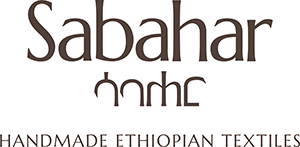SILK
Silk has played an important role in the social and religious life of Ethiopia from the earliest days of the kingdom of Axum. Imported in large quantities from India, Arabia and China, silk fabric was unraveled in order to use the silk thread for weaving. It was stored in vast caverns in the highlands of the country. One of the hereditary titles of the governor of Shoa province was ‘keeper of the Silk Caves’ and from these stores, Ethiopian emperors would make impressive gifts of silk to the other churches in the Christendom.
There was never any indigenous production of silk until about twenty two years ago when the Ministry of Agriculture brought silk from India and trained farmers on its cultivation. Silk production can be part of a diverse household economy as income that women earn and control. As such, it is more likely than not to be allocated to the health and education of the children.
The cultivation of silk is easy but time intensive.






Silk production at Sabahar
Sabahar weaves with eri and mulberry silk. Each variety is very unique in its aesthetic. Most of the silk produced in Ethiopia is eri silk. This is a rare variety that is hearty and easy to cultivate. The eri silk caterpillars eat castor, environmentally friendly plants that grow abundantly all over the country. The silk that is produced has a rough, organic look. We buy eri silk cocoons and thread from rural farmers, farming cooperatives and a few large-scale farms.
Sabahar also imports Mulberry silk from India in order to weave the two different types of thread in order to create a variety of different textures.
Today, Sabahar, still the pioneer of local silk, is one of the only companies in the world which produces textiles for export made of Ethiopian silk.

